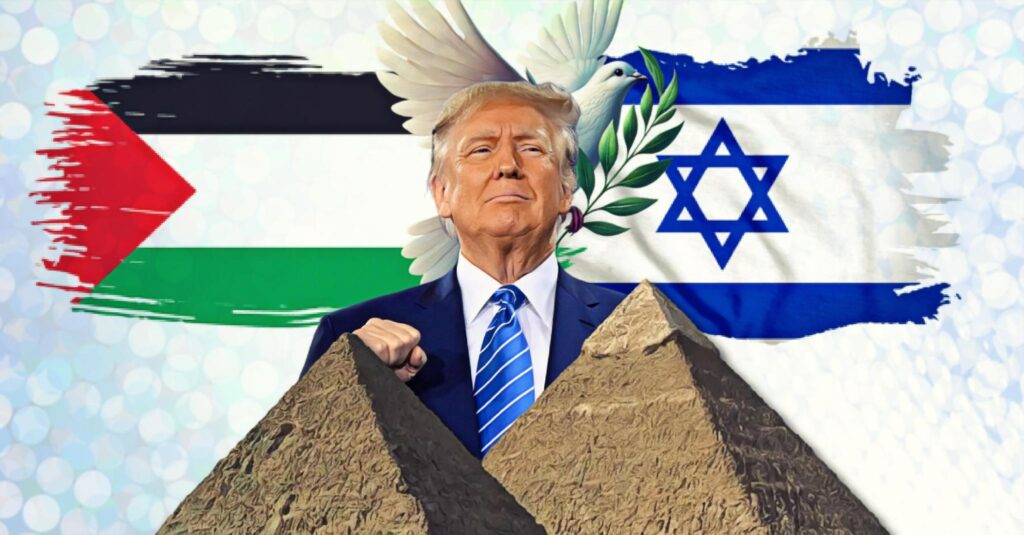After defeating ISIS, the Abraham Accords were perhaps the greatest peacebuilding legacy of the Trump administration. The agreement was announced in August 2020 and finalized on January 6, 2021, when Sudan signed on to the agreement. The Accords normalized diplomatic relations between Israel and many Arab and Muslim nations, including Bahrain, Sudan, Morocco, and the UAE, and marked the first time Israel established diplomatic relations with an Arab country since the Israel-Jordan Peace Treaty in 1994. With the eventual addition of Saudi Arabia all but a certainty, a major step toward peace and geopolitical stability in the region was well underway.
Less than four years later, the picture of Middle-East peace and stability is substantially bleaker, to say the least. The deadly and atrocious terror attacks committed by Hamas against Israeli civilians on October 7, along with the broader reverberations of this conflict in Lebanon and Iran, threaten to engulf the entire region (if not the entire world) in a major war.
The situation in Gaza itself is bleaker still. Nearly 2 percent of the Gazan population has died in the wake of the October 7th attacks. A preliminary calculation suggests that the life expectancy fell by 5 to 15 years for women and 7 to 23 years for men as a direct result of violence. This is surely an underestimate for two reasons. First, despite the death of Hamas leader Sinwar, guerrilla warfare in Gaza shows no sign of stopping. Second, it neglects the substantial indirect deaths resulting from the economic, health, and social deprivation arising from the ongoing IDF efforts to neutralize Hamas. For reference, the COVID-19 pandemic, which led Western policymakers to engage in rolling lockdowns, mandated vaccination, and mass censorship, reduced life expectancy by less than 3 years in the U.S. for either sex in the largest credible estimates I have been able to find. In fact, this very outlet, Revolver News, was the very first to ingeniously apply a life years metric to more accurately quantify the loss of life resulting from COVID lockdowns.
The tragedy in Gaza shows no sign of ending, and worse still, the conflict has intensified in Lebanon and Iran. In solidarity with the Hamas fighters, Houthi pirates have blockaded the Red Sea Strait, one of the planet’s most important trade routes. Furthermore, battles on the Lebanese border and Israel’s bold liquidation of Hezbollah’s leadership have exacerbated some of Israel’s PR and geopolitical challenges stemming from its ongoing actions in Gaza. This extends beyond Russia’s decision to curry favor with anti-Western forces by condemning Israel’s actions to include significant pushback from Western leaders, the most prominent of which is Macron, who recently pledged the shipping of hundreds of millions of dollars in aid and arms from France to Lebanon (which are likely to wind up in Hezbollah’s hands). Biden administration incompetence and malfeasance have resulted in essentially no progress toward the resolution of either the blockade or the Gaza war. President Trump will enter (God willing) his second term amidst an unprecedented Middle Eastern conflagration.
What can be done? As a preliminary matter, the U.S. should first recognize what its interests in the region are. Israel has an interest not only in the neutralization of Hamas but more broadly in doing what is necessary to achieve a secure existence in the region into the indefinite future. More cynically but not mutually contradictory, Netanyahu recognizes his interest in prolonging the conflict as long as possible to avoid his domestic troubles (possibly even prosecution and jail). The U.S. has a strong interest in ending the conflict and restoring global trade through the Red Sea Strait as soon as possible. Indeed, reports indicate that Trump has signaled that he expects Netanyahu to end the war before he assumes office. In addition to ending the Gaza conflict and its wider extensions in Lebanon and Iran, the U.S. has a more enduring interest in reducing its long-term expenditures in the Middle East, which have exceeded trillions in the Iraq war and international aid. The benefit from this spending is debatable, but no one argues that the benefits have exceeded the cost. Policymakers have limited time and attention. In the case of the Israeli-Gaza conflict, many would argue the problems of immigration, rapid population aging, the possibility of atomic warfare in Europe and the Pacific, and even rogue superintelligence are more pressing by any serious calculation than squabbles over a piece of land spanning less than 370 square kilometers, with few natural resources and limited geographic importance. […]
— Read More: revolver.news


